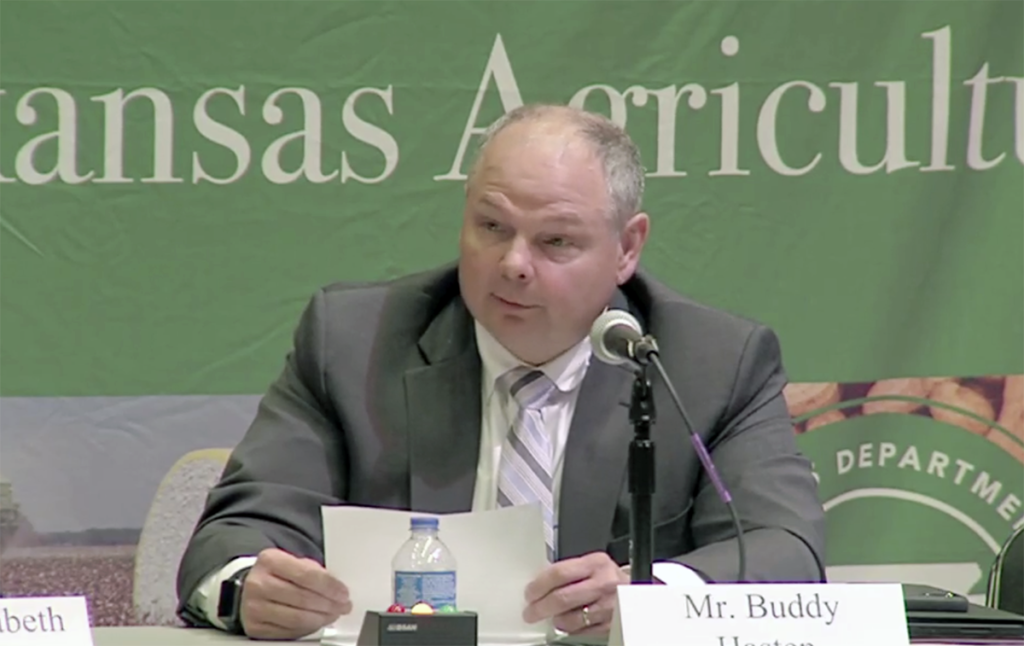
Congress must heed recent warnings about grid reliability to ensure that electric cooperatives can continue to provide rural Americans with reliable, affordable power, an Arkansas co-op leader told a Senate panel Friday.
“Electric cooperatives are committed to keeping the lights on across rural America at a cost that families can afford,” said Buddy Hasten, president and CEO of the Arkansas Electric Cooperative Corp., in testimony before the Senate Agriculture, Nutrition and Forestry Committee at a field hearing at Arkansas State University.
“As we look to the future, we worry that federal and state policies, as well as market changes, are causing an imbalance of electric supply and demand that jeopardizes our ability to fulfill this commitment.”
He noted that the North American Electric Reliability Corp. warned in its 2022 Summer Reliability Assessment that parts of the Midwest could face outages during periods of peak demand.
“Put simply, this is because generation capacity has been reduced while peak demand is projected to increase—decreasing supply while increasing demand,” he said. “A concerning pattern is forming in which baseload generation such as natural gas, coal and nuclear energy is prematurely retired and then replaced primarily by intermittent generation like wind and solar.”
It will take a diverse energy mix to provide the power that Americans depend upon, Hasten said.
“To be clear, this is not about prioritizing one energy source over another,” he said. “Our focus is whether we will have the diverse tools needed to keep the lights on for American families and businesses.”
When the electric grid fails, “it almost always results in financial catastrophe and loss of human life,” Hasten said. “It’s important for lawmakers to understand the pivotal role they play in this conversation.”
Hasten also urged Congress to streamline the U.S. Department of Agriculture’s ReConnect Loan and Grant Program, which provides funding for electric co-ops and others to bring high-speed internet to rural communities with little or no broadband service. The Senate agriculture committee is looking to reauthorize the program in the 2023 Farm Bill.
In Arkansas, 14 of the 17 electric co-ops provide broadband service to their members and greatly appreciate the funding provided by ReConnect, Hasten said. However, he said the program is unwieldly and is designed for a traditional telecommunications company, failing to take into account the co-op business structure that has been used successfully for more than 80 years. He said the ReConnect requirements can be especially difficult for small co-ops to navigate since they don’t have large staffs to administer the program.
“As Congress begins to think about the next Farm Bill, ensuring that these programs are flexible and streamlined will allow electric cooperatives to deploy fiber resources as quickly and efficiently as possible,” Hasten testified.
Congress could also help electric co-ops reduce costs for rural Americans by passing key legislation to refinance federal loans and provide direct payments for energy innovation, Hasten told the senators.
In Arkansas, almost every co-op borrows from USDA’s Rural Utilities Service to build and maintain their infrastructure, he said.
“Unlike a private business loan or typical home mortgage, these RUS loans are unable to be refinanced to current market rates without facing a significant prepayment penalty,” he told the senators.
Without relief, co-ops will have to pass expensive debt costs along to their members, Hasten said. He urged senators to support the Flexible Financing for Rural America Act, which would allow co-ops a one-time rate adjustment to current market rates without penalties.
“For electric cooperatives in Arkansas, this would yield over $100 million in future savings for our member-owners,” he said.
Hasten also asked senators to support direct federal payments to not-for-profit co-ops as incentives to help pay for developing new energy resources and technologies, including renewable energy, battery storage projects, nuclear energy facilities and carbon capture and storage.
“Many newer, cleaner technologies are attractive to rural utilities,” he said. “We serve the areas where you are most likely to see expansive solar farms or clusters of wind turbines; however, we are handcuffed by the tax code and the significant capital expenses required to deploy innovative technologies.”
Erin Kelly is a staff writer for NRECA.